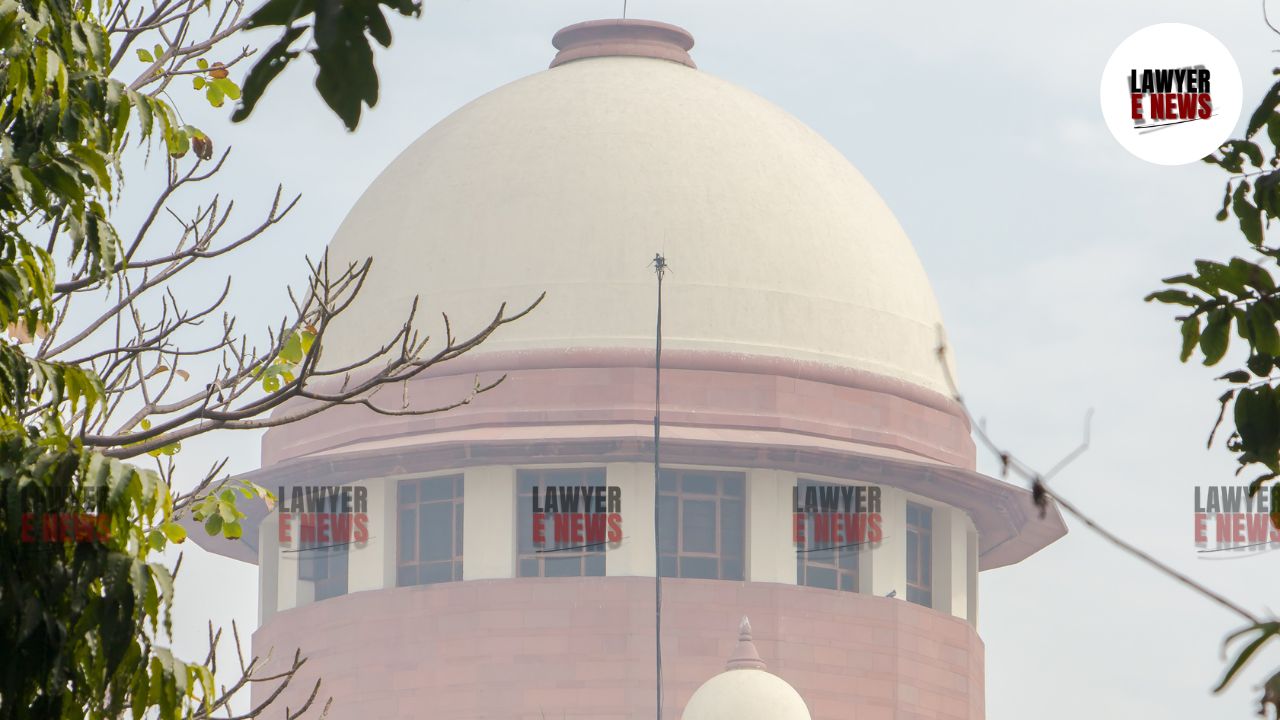-
by Admin
15 February 2026 5:35 AM



Supreme Court of India, in the case of Javedali Mahebubmiya Saiyed v. State of Gujarat & Anr., addressed the contentious issue of property demolition following a family member's alleged involvement in a crime. The Court ruled that the alleged criminal activities of one family member do not justify the demolition of legally constructed residences of other family members. The Court ordered status quo on the property, highlighting the rule of law in such cases.
The petitioner, Javedali Mahebubmiya Saiyed, challenged the threatened demolition of his family's home by the municipal authorities in the village of Kathlal, Kheda District, Gujarat. According to the revenue records (Annexure P/1), the petitioner is a co-owner of the property in question. A resolution passed by the Kathlal Gram Panchayat on August 21, 2004, had granted permission to construct residential houses on the land. The petitioner claimed that his family had been residing there for three generations, spanning over two decades.
However, following the registration of an FIR against one family member on September 1, 2024, municipal authorities allegedly threatened to demolish the petitioner’s family home.
The primary legal issue revolved around whether the municipal authorities could threaten to demolish a legally constructed and occupied house merely because a family member was accused of a crime. The petitioner argued that the law should follow its due course against the accused individual, but such actions should not lead to the demolition of the property of other family members who are not involved in the alleged crime.
The Court took cognizance of the matter, noting that in a country governed by the rule of law, the actions of one individual cannot invite punitive measures against other innocent members of the family. The Court emphasized that involvement in a crime needs to be proved through the legal process in a court of law, and such demolition threats could be seen as a violation of the principles of justice.
The Supreme Court observed that demolishing a property due to the alleged involvement of a family member in a crime is unwarranted and runs contrary to the rule of law. The Court underscored that "Alleged involvement in crime is no ground for demolition of a property" and stressed that any crime must be proved in a court of law through due legal process. It highlighted that such demolition actions might be perceived as "running a bulldozer over the laws of the land."
In response to the threat posed by municipal authorities, the Court issued a notice to all concerned parties and directed them to maintain the status quo regarding the petitioner's property. This interim order offers immediate relief to the petitioner, ensuring that the property is not demolished until further legal review.
The Supreme Court's intervention in this case reinforces the principle that the rule of law must be upheld, and punitive measures such as demolition of property cannot be taken without due legal process. This decision signals a strong stance against arbitrary actions by municipal authorities and ensures the protection of property rights in cases where there are allegations against individual family members.
Date of Decision: September 12, 2024
Javedali Mahebubmiya Saiyed v. State of Gujarat & Anr.
